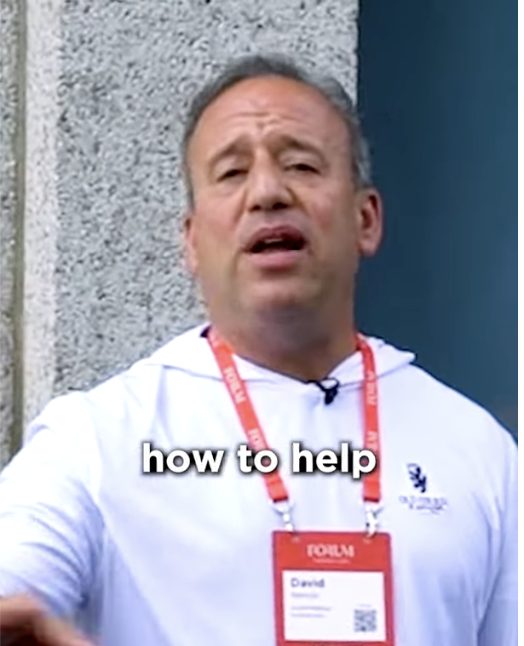When we feel lost or uncertain about our direction in life, our natural instinct is often to retreat inward, searching for answers within ourselves. But after decades of experience in business and personal development, I’ve discovered a counterintuitive truth: the fastest path to self-discovery isn’t looking inward—it’s reaching outward to help others.
This simple shift in perspective has transformed my life and the lives of countless individuals I’ve coached. The principle is straightforward yet profound: if you don’t know what to do with yourself, go help somebody else.
The Power of Service When You’re Lost
I’ve seen too many people paralyzed by indecision or lack of clarity about their purpose. They spend years in this state of limbo, reading self-help books, attending seminars, and endlessly contemplating their options. But the answer rarely comes from this internal struggle.
Instead, I’ve found that when you shift your focus to serving others, something magical happens. The fog lifts. Your own path becomes clearer. This isn’t just feel-good advice—it’s a practical strategy for personal growth.
When you help others find what they want, you begin to discover who you are. It’s like turning on a light in a dark room—suddenly, you can see everything more clearly, including yourself.
Simple Acts of Service
You don’t need special skills or resources to implement this approach. If you don’t know how to help someone, the simplest thing you can do is let them know they’re not alone. Human connection is powerful medicine, benefiting both the giver and the receiver.
Here are some ways to put this principle into action:
- Reach out to someone going through a difficult time
- Volunteer for a cause that resonates with you
- Offer your skills or knowledge to someone who could benefit
- Simply listen to someone who needs to be heard
These actions might seem small, but they create ripples of positive change, both in others’ lives and in your own development.
The Paradox of Self-Discovery
The most profound insight I’ve gained from my work with the Napoleon Hill Institute is that self-discovery often happens indirectly. When we obsess over finding ourselves, we can get stuck in endless loops of introspection. But when we focus outward on service, we often stumble upon our purpose naturally.
I’ve witnessed this transformation countless times in my coaching practice. Clients who felt directionless found clarity and purpose when they started helping others. Their identity emerged through their impact on the world around them.
This approach works because it shifts us from self-absorption to contribution. It moves us from asking “What do I want?” to “What does the world need that I can provide?” This subtle shift changes everything.
Being Kind to Your Future Self
Another powerful concept I’ve embraced is being kind to your future self. Every good deed you do today creates a better tomorrow for you and others. It’s like making deposits in a karmic bank account that pays dividends in unexpected ways.
When you help others, you’re not just changing their lives—you’re changing your own trajectory. You’re creating new connections, developing skills, building confidence, and discovering passions you might never have recognized otherwise.
The beauty of this approach is its simplicity. You don’t need to have everything figured out. You don’t need a five-year plan. You just need to start where you are, with what you have, helping who you can.
The Transformation Happens Quickly
What surprises many people is how fast this transformation can happen. I’ve seen individuals stuck in years of indecision find clarity within weeks of adopting this service-oriented mindset. The shift can be that dramatic.
When you’re lost and help someone else find what they want, you’ll discover who you are almost immediately. This isn’t mystical thinking—it’s practical psychology. Helping others gives us perspective, purpose, and a sense of agency that’s hard to find through introspection alone.
So if you’re feeling stuck or uncertain about your path, don’t retreat further into yourself. Step out. Reach out. Help someone. Do good deeds. Not only will you make the world better, but you’ll also discover who you are meant to be in the process.
Frequently Asked Questions
Q: What if I’m too overwhelmed with my own problems to help others?
Even small acts of service can break the cycle of rumination about your own challenges. Begin with something simple that requires only a few minutes. The shift in focus often provides relief from your own struggles and gives you a fresh perspective.
Q: How exactly does helping others lead to self-discovery?
When you help others, you naturally engage your strengths and values. You’ll notice what energizes you, what you’re good at, and what gives you satisfaction. These clues point toward your authentic self and purpose. Additionally, service puts you in new environments with new people, expanding your horizons and possibilities.
Q: What if I try to help someone and fail?
Failure is part of growth. Even unsuccessful attempts to help others teach you something about yourself and develop your capabilities. The attempt itself is valuable, regardless of outcome. Plus, people generally appreciate sincere efforts to help, even when they don’t work out perfectly.
Q: Can this approach work for major life decisions like career changes?
Absolutely. Many people discover their ideal career path through volunteer work or helping others informally. Before making a major change, try volunteering or freelancing in areas that interest you. This hands-on experience provides much better guidance than endless theoretical contemplation.
Q: How can I be kind to my future self in practical ways?
Being kind to your future self means making decisions today that benefit you tomorrow. This includes developing healthy habits, building skills, nurturing relationships, and creating opportunities through service to others. Each good deed creates positive momentum that carries forward, making your future path smoother and more fulfilling.







